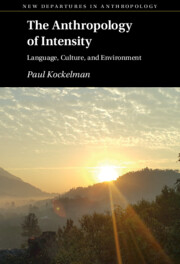Book contents
Introduction: Intensity
Published online by Cambridge University Press: 05 May 2022
Summary
This book is about intensity, which might be provisionally understood as significant degrees of salient dimensions in shared worlds. For example, what counts as too hot, very cruel, not far enough, over-priced, most pressing, underwhelming, sooner than previously believed, excessively polite, almost unlivable, or extremely shortsighted. As may be seen, such assessments involve dimensions such as heat, speed, proximity, cruelty, price, importance, unlivability and shortsightedness. Such assessments involve degrees, and ways of manipulating them: discursive resources and embodied registers for sensing and expressing how hot, cruel, close, expensive, shortsighted, or unlivable something is. And such assessments involve the particular worlds in which such dimensions and degrees come to matter: not just physical places with ecological potentials and material constraints, but also imagined worlds of possibility and necessity, normative worlds of permission and obligation, economic worlds of credit and debt, affective worlds of anxiety and desire, and far beyond.
- Type
- Chapter
- Information
- The Anthropology of IntensityLanguage, Culture, and Environment, pp. 1 - 24Publisher: Cambridge University PressPrint publication year: 2022



